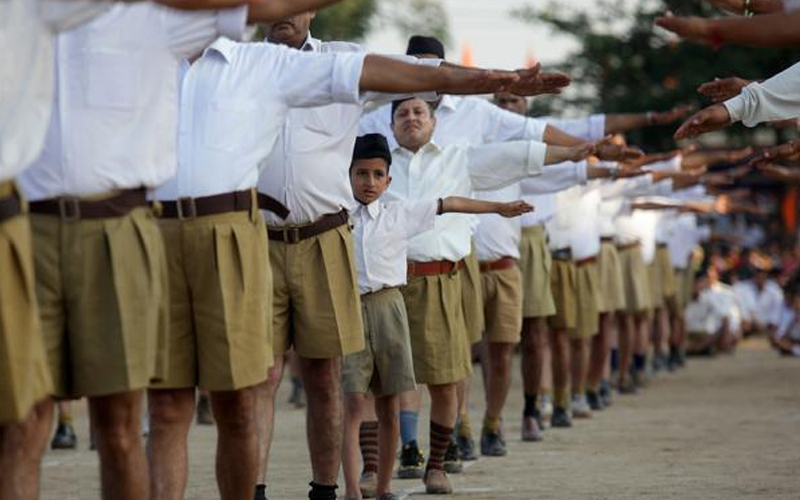New Delhi: Moving forward to strengthen and build an army of its own principles, the right-wing Hindu organization RSS will be become indistinguishable name in the Indian society by 2047.
RSS Pracharak Sunil Ambedkar mentions this in his forthcoming book “the RSS Roadmap for the 21st Century”.
“What will be the state of our nation in 2047 (centenary of Independence)? After deliberating with RSS functionaries, the common answer I could gather was that India… Sangh would become indistinguishable from Indian society. Sangh would become coterminous with all of Indian society and the need for it to exist as a distinct entity would be obviated,” reads the book.
Slated to be released on October 1 by RSS sarsanghchalak Mohan Bhagwat sheds light on several issues pertaining to the RSS.
In his book, the Sangathan Mantri (organising secretary) of the ABVP, an RSS affiliate working among students very well advocates construction of Ram temple in Ayodhya, uniform civil code and constitutional amendment as the important goals to achieve.
“Constitutions are not frozen in time; they are dynamic texts. Uniform Civil Code is not only necessity for Ekatmata, but also a preventive against the exploitation that Muslim women have had to endure due to their religious laws,” it says.
The book does mention exploitation of Muslim women, when the government has not thoroughly gone through the after math of Triple talaq bill.
In the chapter “The History of Bharat”, Ambekar narrates the RSS’s efforts to revise history and calls renaming of cities like Faizabad to Ayodhya and Allahabad to Prayagraj as “an important part of the reclamation (of History) project”, besides demanding renaming Aurangabad in Maharashtra as Sambhajinagar.
The author in his book writes that RSS backs use of terms like “Hindutva” and “Hindu Rashtra” and “is working to give it greater currency”.
But attempts to clarify “Hindu Rashtra is not anti-Muslim” and that Hindu Rashtra “is the imagination of contemporary, non-violent nation where peace and prosperity prevail, which promotes freedom of worship and equality for women”.
Inviting Muslims to the cause of Hindutva, he says it is the cause of Ekatmata.
“Muslims and Christians can also subscribe to Hindutva because it is a matter of national identity”.
“It is the forefathers of the Hindu people that have set up the traditions of love and devotion for the motherland,” he recalls.
Besides inviting Muslim community, he says as “as Sangh work expands, SCs and OBCs will be seen in prominent positions in all tiers of Sangh activity” but there is no mention of equality among these castes.
“Forward planning, meticulous designing of initiatives and inspiring rich contributions from activists is a Sangh specialty, and twenty-first-century India will see a lot of it.” It asserts that “Sangh is not a political party but a social organization”.

